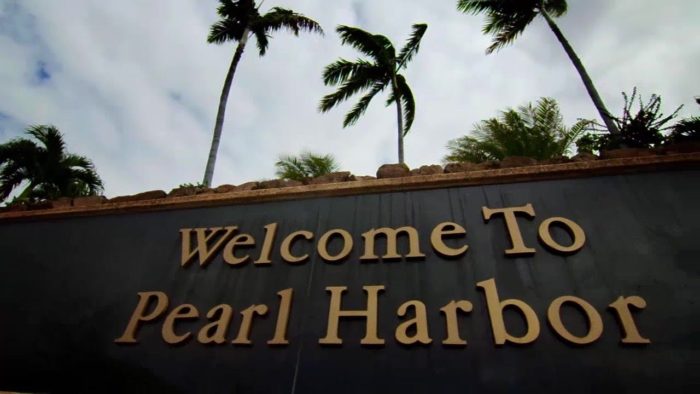Published in the Nikkei Asian Review 21/12/2016
On Dec. 26, U.S. President Barack Obama and Japanese Prime Minster Shinzo Abe will jointly pay their respects to the war dead at Pearl Harbour, the U.S. naval base bombed by Japanese planes in the opening salvo of the Pacific War. The occasion will be a symbol of reconciliation between the two countries and provide an appropriate “flower path” – the platform by which kabuki actors enter and exit the stage – for Obama to end his eight years in office.
It may also mark the end of a longer era – the post-war settlement under which American hard power protected a constitutionally and psychologically pacifist Japan. With U.S. President-elect Donald Trump about to take his turn on the “flower path” and Xi Jinping’s China throwing its growing weight around, different strategic arrangements will soon be required.
The meaning of Pearl Harbour has changed significantly over time, reflecting shifts in the relationship between the U.S. and Japan. The day after the attack President Franklin Roosevelt branded it an act “that will live forever in infamy,” voicing the assumptions of an era in which most conflict was between states and dressed in the diplomatic protocol of declarations of war. “Remember Pearl Harbour” became a call to arms against a ruthless and duplicitous enemy who attacked, according to FDR’s formulation, unexpectedly and without provocation.
https://www.youtube.com/watch?v=3VqQAf74fsE
Memories were still fresh in the 1980s when emotions ran high over trade friction. Famed journalist Theodore White, who had reported from China during the war, drew the parallel in a New York Times article:
“Tactically, the attack on Pearl Harbor was one of the most brilliantly executed strokes of the war… Today, 40 years after the end of World War II, the Japanese are on the move again in one of history’s most brilliant commercial offensives, as they go about dismantling American industry…”
CLINT’S SYMPATHY
That commercial offensive petered out long ago and with it paranoia about Japanese industrial might. In 2008 when Warren Buffet described the global financial crisis as “an economic Pearl Harbour” he was not pointing the finger at some hostile force. The banking meltdown was hardly a spontaneous, previously unimaginable event; Buffet himself had often warned of rising systemic risks. In reality trouble had been brewing for a long time – as with the outbreak of hostilities between the U.S, and Japan six decades before.
Recent American movies have reflected a more nuanced view of the conflict, particularly Clint Eastwood’s Flags of Our Fathers and Letters from Iwo Jima, which take the unprecedented step of presenting the savage battle from both sides with equal sympathy. Writer Ian Buruma observes that Eastwood makes the Japanese enemy “wholly convincing and thoroughly alive.”
Japanese movies have evolved too. The best war films of the 1950s and 1960s tended to be strongly pacifist, like Kon Ichikawa’s Burmese Harp. or pre-occupied with Japanese suffering, like Kaneto Shindo’s Children of Hiroshima.
In contrast, the recent Eternal Zero, adapted from a novel by one of Shinzo Abe’s favourite writers, offers a more complex set of messages.
The protagonist is a brilliant fighter-pilot who avoids dogfights because he wants to survive the war and return to his family. He takes part in the attack on Pearl Harbour, but walks away from his comrades’ celebration aboard the carrier. Why? “Because we’ve already lost,” he says. The film portrays Japan’s military leadership as brutal blockheads, but at the same time – controversially, to some – celebrates the bravery of individual combatants and criticizes the shallow hedonism of today’s Japan.
A CHINESE VERSION OF THE MANCHURIAN INCIDENT
In popular culture “Remember Pearl Harbor” no longer means the same thing that it did to either the U.S. or Japan. American exceptionalism –and the assumption of the moral high ground that comes with it — is buckling under new economic and strategic pressures. Meanwhile Japan is moving away from the pacifism that has been such a dominant intellectual force in the post-war era. Geopolitics suggests that these trends are likely to strengthen
For the echoes of the disastrous events of 75 years ago still resound through the region today. According to Kunihiro Miyake, a former diplomat now with the Canon Institute for Global Studies, it is the leaders and citizens of another Asian power that “should heed the lessons of Pearl Harbour.”
In his view, China’s territorial expansion in the South China Sea constitutes a challenge to the status quo similar to the Manchurian Incident of 1931, a military pretext Japan used for extending its grasp over Chinese territory. Such adventurism, he writes, risks “an accident that could very easily lead to the start of a shooting war.”
When the President of the United States and the Prime Minister of Japan stand side-by-side in Hawaii at the end of December 2016, they will not just be laying to rest the ghosts of the past. They will also be seeking to ward off the spectre of future peril.


